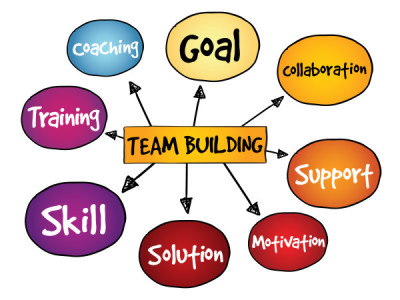A Recipe For Happy Holidays
The holiday season can be a great time for storytelling, family get-togethers, and delicious food. But, of course, there’s nothing better than being surrounded by loved ones while eating excellent entrees made only for special occasions. This is why we need a recipe for happy holidays.
We always aim to make the holidays as enjoyable as possible, no matter the circumstance. Unfortunately, certain situations can make that difficult.
Being a blended family can make things hard around the holidays. It can be difficult for children to go back and forth between parents. It can also be stressful adjusting to other family members who may not be used to your new household. Sometimes, other family members can make things extra complicated.
On top of that, negative emotions may arise that affect the dynamics of your holiday season. For example, holidays can be overwhelming if you or someone in your family is going through a difficult time.
While everyone else is celebratory, you could be wrestling with internal emotions. When this comes out in negative ways, enjoying yourself can be challenging.
We’re all human, and it’s normal to feel contention between other family members around the holidays. But, there are ways to combat these situations to avoid significant conflicts. Here are some things you can do to work with difficult personalities and emotions.
Dealing With Difficult Personalities
All of us are different, and this includes our family members. For blended families, holidays can be very overwhelming. This is especially true for newly married couples trying to adjust to their new life.
Being around other family members means dealing with difficult personalities. Whether this comes out in disagreements or disrespect, it’s essential to stay calm.
To avoid contention between other family members, be prepared with healthy strategies. First, be informed about your family members and plan for disagreements.
It’s okay if people don’t always agree. What matters is how you react. Be a role model that encourages your family to empathize with other family members. Their personalities may be difficult, but it’s important to remain respectful and understanding.
The Arguer
These family members are aggressive and combative. If an argument breaks out, they’re going to have the last word. This can make them unpredictable, especially if you don’t know what sets them off.
These people can make other family members feel like they’re walking on eggshells. The best way to approach them is with short and friendly conversations. Don’t bring up anything that could start an argument.
The Smart Aleck
These family members can be exhausting, annoying, and argumentative. Since they think they know everything, they’re going to treat you with condescension. So if you try to have a conversation with these family members, it will almost always turn into an argument.
If they start one around the dinner table, try to use inclusive language like “we” and “us.” This will bring more control to the family and defuse the situation.
The Passive-Aggressive Person
Passive-aggressive family members are master manipulators. They won’t bring their criticisms to the surface. Instead, they’ll make their voice heard through rude sarcasm.
But, because they don’t like to be called out, putting them in the spotlight will make them retreat. Instead, try asking these family members questions. This will prevent them from being passive-aggressive towards you.
Negative Nikki
These family members never have anything positive to say. Instead, they will complain to cover up their lack of self-esteem. Even so, the best way to approach them is to show genuine interest in their life.
Try to redirect negative conversations into something positive by stating facts. If you show you care, they will forget about their complaints.
The Wallflower
These family members can be a calming presence around the holidays. They are often quiet, non-confrontational, and aloof. But, this can make them difficult to approach.
They can be hard to read and difficult to include in conversations. Try to be aware of your surroundings, including them in conversations you overhear. Be ready with open-ended questions that will initiate a discussion
Dealing With Negative Emotions
The holidays are a time of joy, happiness, and fun. But, if you’ve experienced something negatively affecting your emotions, it can be hard to enjoy yourself.
Instead of ignoring these feelings, it’s essential to take care of yourself. Here are some positive ways to deal with your negative emotions.
Feel Your Emotions
Don’t stifle your emotions. Instead, open yourself up and be vulnerable. If you try to suppress your feelings, you could unintentionally take them out in unhealthy ways. Instead, let yourself feel these emotions and experience the process of accepting them.
Validate the Feelings
Once you’re identified the emotions, it’s time to validate them to yourself. Accept the fact that you’re experiencing these emotions and reach out for support.
Try to think of people that you trust. Reach out to a mental health professional if you’re struggling to deal with them.
Respond to the Emotions
Avoid letting these emotions fester. Refusing to acknowledge your feelings may result in an outburst or unintentionally hurtful situation.
Instead, reach out to a support group or meet with a mental health professional. Then, figure out a way to cope with your emotions in healthy ways.
Have a Happy Thanksgiving
Gerardo





